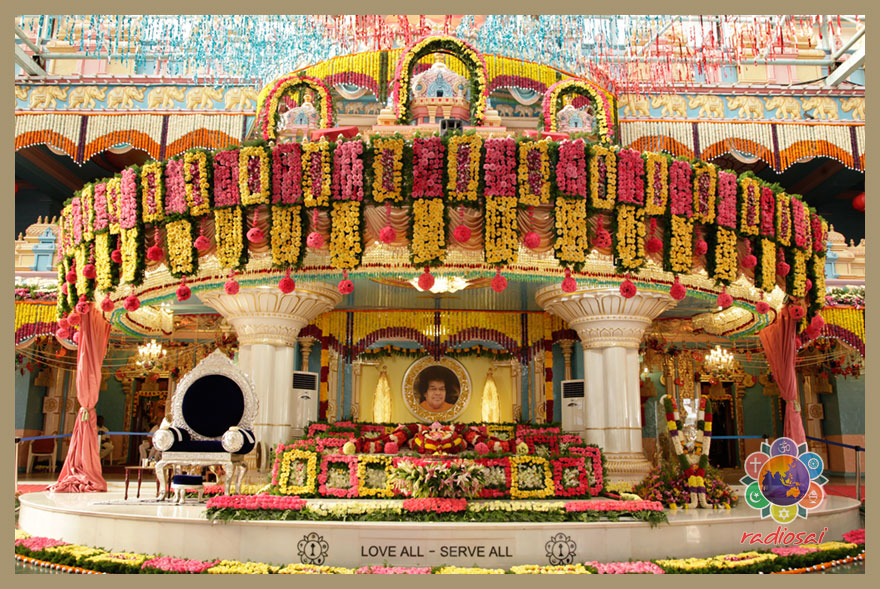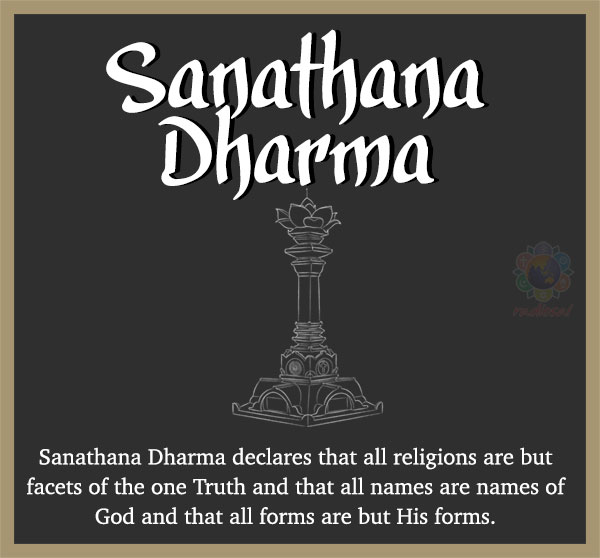|
|
| 'Like' us on Facebook | Follow us: |
Posted on: April 20, 2017
Sathya Sai – The Dimensionless Phenomenon
And the Unparalleled Dimensions of Sanathana Dharma Exemplified by Sai
by Mr. S Gurumurthy
Part 03
We are all in this ancient and great land. How is it that this land has a continuity of such great men? Our ambition and our prayer is that He will be born again and He will be with us again in flesh and blood. He is with us but He will be with us in the form in which we can see, experience and hear Him singing again. How is it that this is happening only in this country? This is a question which all of us have to address.
What is the mission of India and what is her vision? What is her responsibility to the world? The world looks like a very complex and tottering phenomenon today. As someone who studies these subjects very deeply — economics, society, culture, tradition, families and gender relations, I am aghast at where the world is moving.
There is no anchor; there is no particular ideology or thought system which has lived beyond 30 years in the last 150 years. Every thought which has shattered the world, reconstructed it or deformed it in the name of reformation has not lasted beyond 30 or 40 years.
But in this country, every thought has been received and every thought has been handled. However, there is something which is permanent, sustaining and continuing. Swami says it is the land of sages, saints and rishis — a fortune that is denied to any other country in the world.
And sometimes God comes as avatar. Krishna was never recognised as an avatar in the entire Bharat. Everyone knew, but no one would admit; Krishna too would not admit.
 |
Rama was never seen as an avatar in the Ramayana. God came and wandered and played with us. In Tamil Nadu there are stories that God played with us, God got beaten up and God was with us. We played with Him, we could laugh at Him and we could be His friends.
What is so unique in this land? Swami says that it is the Guru of all nations. For Him the world is one. Everyone and every nation is the same for Him. But if He says this nation is the Guru of all nations, He cannot be untrue. He has to be true; He is Sathya Sai!
We should set on an enquiry as to why He credits this land with this great quality of being the preceptor of the world. There is something in it — the greatest and the profoundest message.
I am going to link the theory to the practice now as to what Swami says about Sanathana Dharma. This is the profoundest message of India.
Sanathana Dharma – As Profound and Powerful as Sathya and Dharma
It looks very simple but bereft of this message the world is going on the wrong path. Once you compare these two different paradigms — one working here and the other devastating the world, then we will understand this message, the purpose of India and the responsibility of all of us not only to ourselves but to the entire humanity.
Now I will look at what Swami says about Sanathana Dharma. It is very simple and I have taken every component of it. Sanathana Dharma includes Dharma but we must look at what Sanathana Dharma is. It is a very simple formulation.
Sanathana Dharma is the only religion. Due to the inadequacy of English, the only word we can use is ‘religion’. Sanathana Dharma is the only religion that declares “There is no religion that can be labelled as the one and only religion.” This was the highest, greatest, profoundest, deepest and the truthful message that this nation gave.
There is no ‘one and only’. Sanathana Dharma declares that all religions are but facets of the one Truth and that all names are names of God and that all forms are but His forms. No religion can claim to represent fully the universal, eternal truth.
It requires such a simple formulation but once a religion claims to represent the only Truth which means all others are false, see the devastation it causes. Just a small variation causes devastation.
Swami also talks about Dharma. Sanathana Dharma rests on Samanya Dharma.
‘Dharma’ is a body of principles that are fundamental to social stability and individual progress. Give me 10 minutes and I will prove every word of this from my empirical understanding of the society, nation and economy.
‘Dharma’ means certain obligations, duties and regulations over actions, words and behaviour. The next two ideas constitute the core of the Truth which this ancient civilisation has taught from generation to generation, which the West has denied itself and has got into ruin. That is what I am going to tell you.
 |
Elders have certain obligation towards youth, as youth have towards elders.
Even war has to be carried on under some rules of decency and humanity. It is not only during ordinary peaceful times that you observe certain principles of ethics, morality, behaviour and conduct.
Dharma prevails even in war where everything is supposed to be fair. Is it something which is Utopian, something which is out of the world?
I am going to tell you a stunning historical study done by R S Whiteway, who wrote on the war between Portuguese and the Mohammedan kings in the 16th and 17th Century in Kerala.
How to Fight Fairly? - India Showed the Way
What happens in the Mahabharatha? Both the sides have friendly relationship, share coffee and tea together and enquire about each other, sleep by the side of each other and in the morning they draw apart and fight with each other. This, we thought, is an artificial rule. Will it work?
I am going to now read out to you what Whiteway says about what happened in Kerala when the Mohammedan kings had a fight. Madhav Menon writes in the ‘History of Kerala’ taking the extracts from Whiteway's book: “There was neither night fighting nor ambuscade.”
No war which surprises the enemy is an ethical war. No ambuscade. All fighting was in the day time when the sun had well-risen and the opposing camps were pitched near each other and both sides slept securely.
As the sun rises, soldiers of both the armies mingled at the tank, put on their armours, ate their rice, chewed their betel, gossiped and chatted together. This is Mahabharatha lived in the 17th Century.
At the beat of the drum, each side drew apart and formed its ranks. It was creditable to first beat the drum to say “I am ready for war” but you won't attack unless the other side also beats the drum.
This is what Swami meant when He said “Even in war there was ethics in this country.” Non-combatants were never attacked. Even someone who dropped the weapon was considered to be a non-combatant.
An injured man was considered to be a patient; it is in Rig Veda and in Mahabharatha. In War in Ancient India, V. R. Ramachandra describes ethical warfare and calls Ashoka's Kalinga war as unethical.
When Swami says this, see how true it was behaviourally on the ground but you must understand how we lost that ethics. Whiteway says this artificial system broke down very quickly under the stress of fighting against the Portuguese. He calls it artificial; we call it ethical. Thus it has always been the custom to sound the trumpet before the war but in 1536 he nearly surprised the Portuguese by abandoning the custom suddenly.
When an inferior civilisation attacks you, the superior civilisation too becomes inferior. This is the message. We have to rise above this and preserve this. Only in 1897, the world came together first in Hague and decided that non-combatants, women and children should not be attacked and that war prisoners should be treated properly.
Swami says that even in war, human values are needed. This is not just theory. It was practised in this country.
- Radio Sai Team
| comments powered by Disqus |






